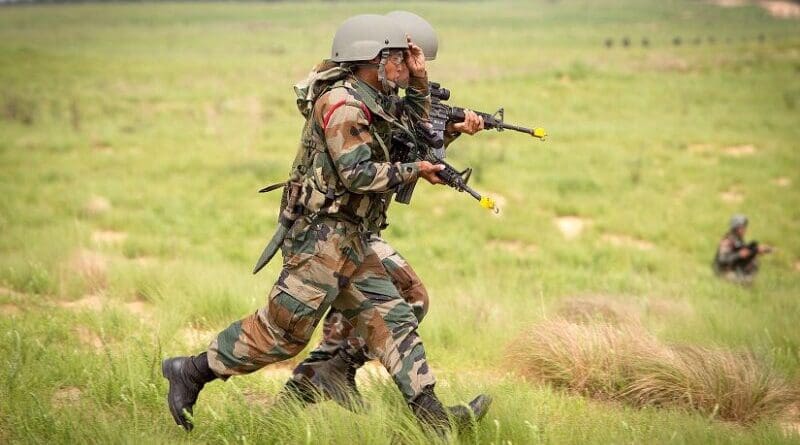Indian Army Prepares For A Tough Summer On China Border – OpEd
The Indian Army says it is preparing in full earnest to counter anticipated Chinese incursions and “other forms of aggression” along the Line of Actual Control (LAC) that intelligence reports have indicated as likely to take place in the summer of 2024 on or before the Indian parliament polls.
Senior military intelligence officials told Eurasia Review that Army Chief Gen Manoj Pande has decided to “combatise” its Central Command, which so far largely provided reserves for the frontline fighting formations in the Western, Northern and Eastern commands.
In US, he was provided with detailed and quality technical-signal intelligence and satellite feeds on Chinese military movements in Tibet and neighbouring provinces, they said.
On Wednesday, Indian defence secretary Giridhar Aramane described China as a “bully” and thanked the US for support to face up to its northern neighbour.
Speaking at the Indus-X summit, Aramane did not rule out “a recurrence of the May 2020 situation” (when Indian and Chinese forces suffered casualties in violent clashes on the Ladakh border) and said US support was critical for India in such a situation.
“One thing which helped us very quickly is the intelligence, the situational awareness which the US equipment and the US government helped us with,” Aramane said. “So that is one single most important area.”
The defence secretary said the strong resolve that both India and the US support each other in the face of a common threat is going to be of much importance.
Military sources said the Indian army is raising a new Corps under the Central Command for deployment in the Central sector of the Line of Actual Control (LAC) with China that falls between Ladakh (under 14 Corps) and Siliguri corridor (under 33 Corps).
This corps will now have its own additional artillery, aviation and engineer brigades along with other elements. So far the Central Command was largely an administrative Command.
The military officials said that Headquarters Uttar Bharat (HQ UB), the administrative formation under the Central Command, is being converted into a full-fledged corps called the 18 Corps with one division and three independent brigades under it to take care of that part of the LAC, which falls between the Leh-based 14 Corps, under the Northern Command, and North Bengal’s Sukna-based 33 Corps, under the Eastern Command.
India has pumped in close to 68,000 additional troops and associated equipment in Eastern Ladakh, deployment was also strengthened along the LAC in the central sectors as well as the Eastern Command.
As part of the changes, the HQ UB, which only had one brigade under it along with some Scout Battalions, got a total of three brigades as the LAC heated up. The new ones included Joshimath-based 9 (Independent) Mountain Brigade, Pithoragarh-based 119 Brigade and the Pooh-based 136 Brigade.
The Dehradun based 14 Division, which was earlier under the Western Command, was also brought under HQ UB.
With the raising of the 18 Corps, the Army will now have a total of seven corps dedicated to guarding the borders with China, up from the earlier five.
Besides the 18 Corps, the LAC also got an additional strike corps since 2020 after Mathura-based 1 Strike Corps was reoriented to the border with China from that with Pakistan, as part of the larger changes in deployment.
The Central Command is operationally responsible for the defence of the central sector along the LAC and the international Border with Nepal – stretching across the four states of Himachal Pradesh, Uttarakhand, Uttar Pradesh and Bihar.
It is also home to 13 Category ‘A’ training establishments, 18 regimental centres and a large number of logistics establishments.
Military sources said these training establishments are likely to be moved to the Southern Commznd where the army is less likely to face operational challenges and might just beef up naval amphibian operations, for which it might raise four battalions of Marines on lines of UK’s Royal Marines.

